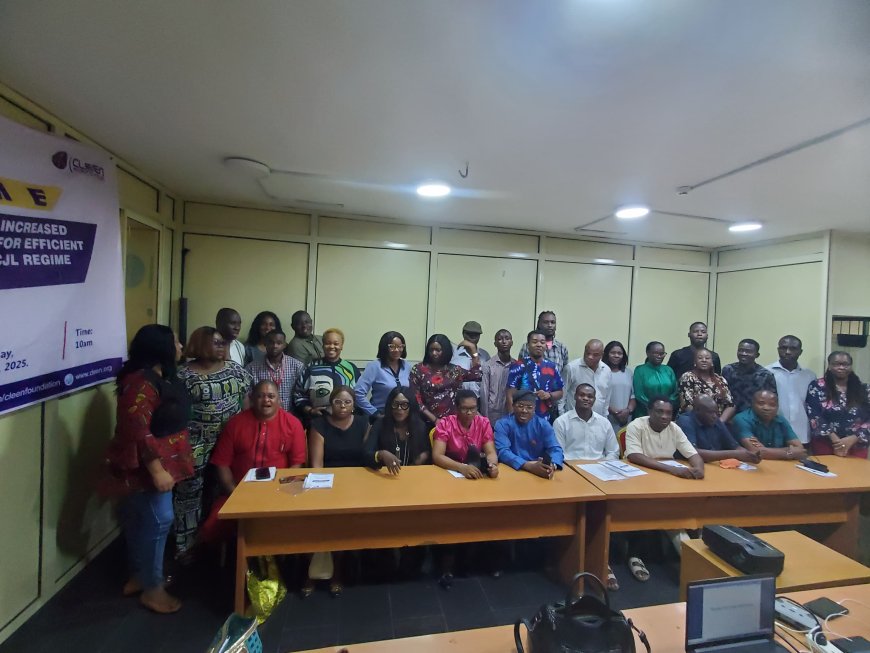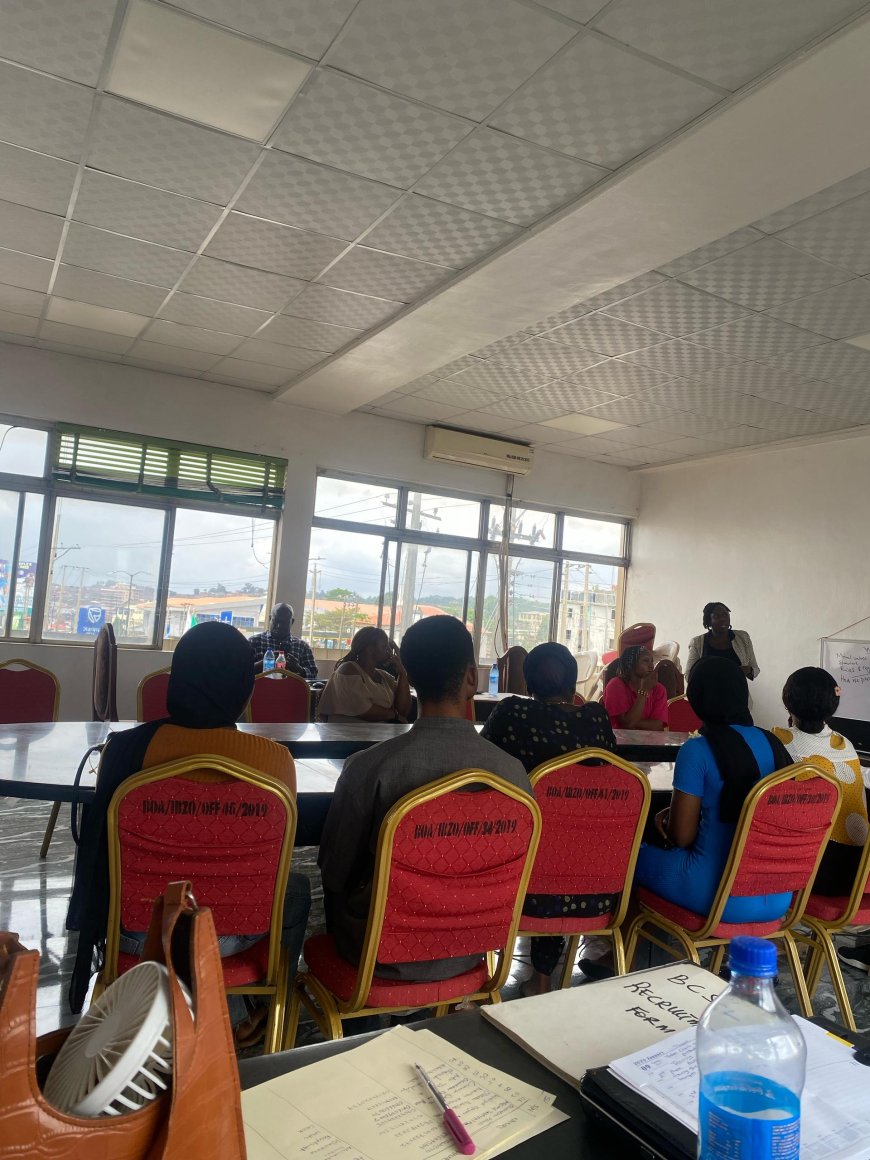CLEEN Foundation Harps On Adequate Funding For Efficient Administration of Criminal Justice System
CLEEN Foundation Harps On Adequate Funding For Efficient Administration of Criminal Justice System

A Non Governmental Organization (NGO) CLEEN Foundation in collaboration with MacArthur Foundation have harped on adequate funding for efficient Administration of Criminal Justice System in Nigeria.
The CLEEN Foundation, a Nigerian organization focused on promoting accountability and transparency in the criminal justice system

The group which also works to reduce corruption, promote transparency, and improve accountability within the Nigerian criminal justice system stated this on Wednesday during a pivotal Media dialogue themed: “ Increased Budgetary Allocation For The Efficient Implementation of The Administration of Criminal Justice Law (ACJL) regime held in Lagos .
Speaking during a presentation, the Programme Director, CLEEN, Mr. Salaudeen Ashim, Stated that financing of criminal justice in Nigeria is primarily government driven, with funds allocated from federal and state budgets.
He said that Nigeria, particularly through the Administration of Criminal Justice Act (ACJA) and its state implementations, is a complex issue with challenges related to funding allocations and resource allocation, as well as the need for efficient management of criminal justice institutions.
“Despite the provisions in the Nigerian Constitution, ACJA, and ACJL, there are challenges in translating these provisions into adequate funding allocations for the courts and other criminal justice institutions – investigation, prosecution to adjudication”

“Adequate funding of the ACJL implementation will accelerate judicial processes, reduce backlog, and ensure that litigations are not unduly prolonged by intermediate appeals”
“Justice is now up for sale to the highest bidder when Ministry of Justice is poorly responding to ACJL” Ashim said
He therefore urged the media to put a spotlight on 2025 budget around funding and whether to know if ACJMC is not existing, inactive or poorly resourced as well as how Plea bargaining becomes a tool to settle PEPs and many others
He further stated that corruption has permeates the entire sector in terms of Poor priorities in budgeting; welfare of justice is tied to the political body languages; deficit infrastructure for efficient dispensation of justice; weak digital infrastructure for interrogation, witness protection and data management.
Ashim also cited some critical issues affecting ACJL such as delay in the dispensation of justice; the custodial centres wich have become crime scene; record of increased cases of suspects escaping police facilities; Investigation and prosecution are poorly executed; in availability of forensic experts or laboratories; profilers – Deficit in human capacity; mental health of criminal justice actors; Poor monitoring platform as well as weak accountability.

He also cited several issues affecting the Institutions including Ministry of Justice at both State and National levels have not demonstrated deliberate will power to reform the criminal justice system.
He added that the National and State Houses of Assemblies are not providing the needed appropriation and oversight while the Executive have weaponized judicial welfare for political gains.
He stated further that criminal justice agencies also flout directives during budget call circulars. They prioritize capital projects for personal gains and led to the poor knowledge of the ACJL amongst criminal justice stakeholders across all levels






















